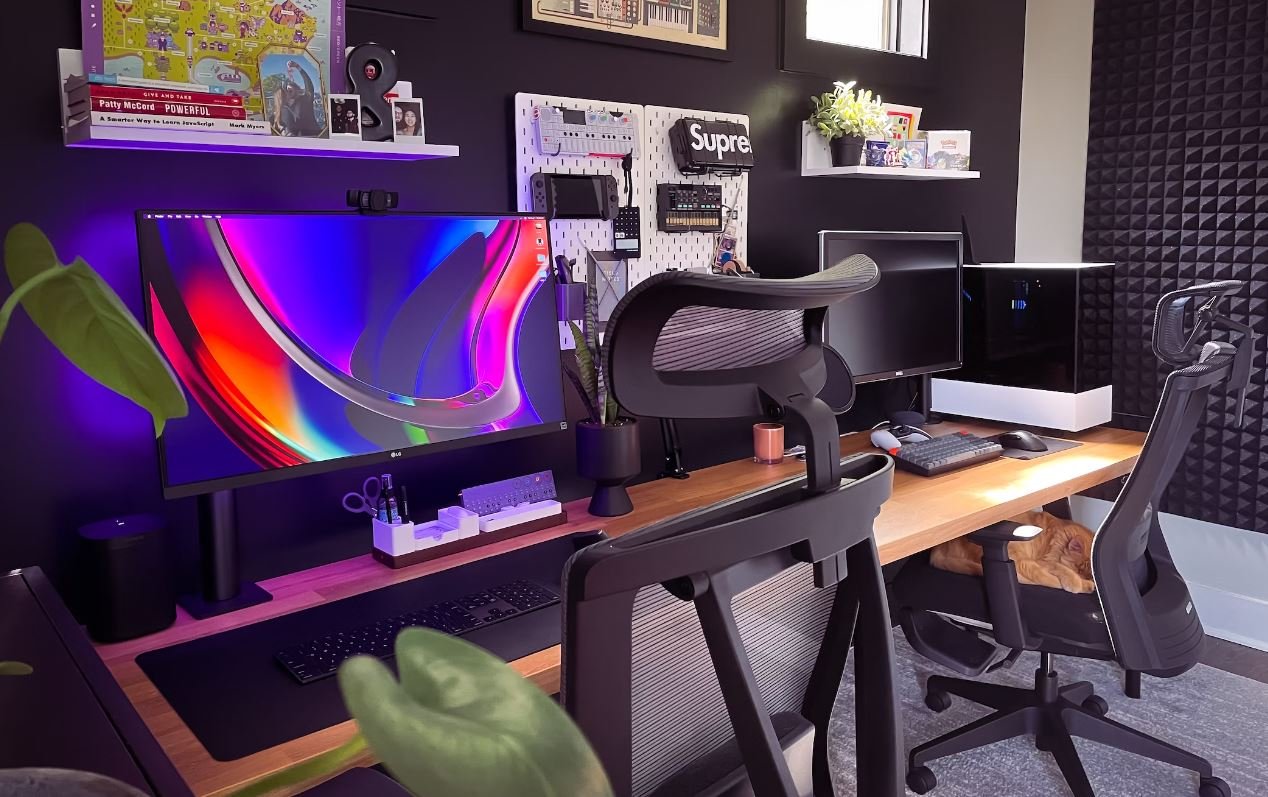Will Air Purifier Help Allergies
Allergies are a common problem that affects millions of people worldwide. The irritating symptoms that allergies cause can greatly impact one’s quality of life. Many individuals seek relief through various treatments, including air purifiers. But will an air purifier help ease allergies? Let’s explore the effectiveness of air purifiers in combatting allergies.
Key Takeaways
- Air purifiers can help alleviate allergy symptoms by capturing and filtering out allergens in the air.
- HEPA filters are particularly effective in trapping airborne particles, including pollen, pet dander, and dust mites.
- Choosing the right air purifier size and maintenance are crucial factors for optimal allergy relief.
How Air Purifiers Work
Air purifiers function by drawing in indoor air and passing it through a series of filters designed to capture various pollutants and allergens. The most effective air purifiers utilize High-Efficiency Particulate Air (HEPA) filters, which can capture up to 99.97% of particles as small as 0.3 microns. These filters are highly efficient at capturing common allergens such as pollen, pet dander, mold spores, and dust mites.
Using an air purifier is like deploying a small army within your home to tackle airborne allergens. *The persistent battle between your allergies and the air purifier can be resolved effectively with proper usage and maintenance*.
The Benefits of Using Air Purifiers for Allergies
Air purifiers offer several benefits for individuals suffering from allergies. By removing allergens from the air, they can reduce allergy symptoms, improve indoor air quality, and create a healthier living environment. Here are some key benefits:
- Reduced Allergen Exposure: Air purifiers can significantly reduce the concentration of allergens in the air, providing relief for allergy sufferers.
- Improved Sleep Quality: By removing airborne irritants, air purifiers can improve sleep quality for individuals who experience nighttime allergies.
- Cleaner Air: Air purifiers help in removing particles such as smoke, dust, and pet dander, preventing them from settling on furniture and surfaces.
Effectiveness of Air Purifiers
The effectiveness of air purifiers in alleviating allergy symptoms largely depends on multiple factors, including the type and size of the air purifier, the severity of the individual’s allergies, and the maintenance of the device. *Choosing the right air purifier model and regularly replacing filters can optimize results*.
| Types of Air Purifiers | Effectiveness |
|---|---|
| HEPA Filters | Highly effective in removing allergens from the air |
| Activated Carbon Filters | Effective in reducing odors and chemical pollutants |
| UV Light Purifiers | Kills mold, bacteria, and viruses but may not capture particles |
Choosing the Right Air Purifier for Allergies
When selecting an air purifier to combat allergies, it is essential to consider factors such as the size of the room, allergen type, and the air purifier’s Clean Air Delivery Rate (CADR). A higher CADR indicates a faster and more efficient air cleaning process. Additionally, considering the noise level, energy consumption, and filter replacement costs can help make an informed decision.
| Room Size (square feet) | Air Purifier CADR (ft3/min) | Recommended Coverage Area |
|---|---|---|
| Up to 150 | 60 – 100 | Small rooms or nurseries |
| 150 – 350 | 130 – 240 | Medium-sized bedrooms or living rooms |
| 350 – 550 | 240 – 340 | Large living spaces or open floor plans |
Maintaining Air Purifiers for Maximum Efficiency
To ensure optimal performance, air purifiers require regular maintenance. Periodically cleaning the filters or replacing them according to the manufacturer’s instructions is vital. Neglecting maintenance can result in reduced efficiency and decreased allergy relief.
- Check the filter indicator and replace filters as recommended.
- Vacuum or wipe the exterior and internal components regularly to remove dust buildup.
- Clean pre-filters or washable filters to prolong the lifespan of the main filter.
Air Purifiers as an Allergy Solution
For individuals suffering from allergies, air purifiers can be an effective tool to reduce symptoms and improve overall air quality. When used correctly, air purifiers, especially those equipped with HEPA filters, can capture and eliminate a significant portion of allergens and other airborne particles. By selecting the right air purifier and maintaining it properly, allergy sufferers can experience relief and enjoy a cleaner and healthier living environment.

Common Misconceptions
Not all air purifiers are effective for allergies
One of the common misconceptions about air purifiers is that they can effectively alleviate all types of allergies. While air purifiers can certainly help to reduce some allergy symptoms, not all types of air purifiers are equally effective. Some common misconceptions include:
- All air purifiers can remove allergens from the air.
- Air purifiers can completely eliminate all allergy symptoms.
- All air purifiers are suitable for people with allergies.
Air purifiers cannot completely eliminate allergies
Another misconception is that air purifiers can completely eliminate allergies. While air purifiers can help to remove allergens from the air, they cannot provide a complete solution. Here are some related misconceptions:
- Using an air purifier will eliminate the need for other allergy treatments.
- An air purifier can eliminate all allergens present in a room.
- Air purifiers can cure allergies.
Quality of air purifiers matters
One misconception is that all air purifiers are equally effective and provide the same level of air purification. However, the quality and efficiency of air purifiers can vary significantly. Some related misconceptions are:
- All air purifiers are equally effective in removing allergens from the air.
- The price of an air purifier doesn’t impact its performance.
- All air purifiers have the same lifespan and durability.
Air purifiers need proper maintenance for effectiveness
Many people think that once they purchase an air purifier, it will automatically provide optimal air purification without any maintenance. This is not true, and here are a few related misconceptions:
- An air purifier will continue to work efficiently without any cleaning or filter replacement.
- An air purifier doesn’t require regular maintenance to maintain its effectiveness.
- All air purifiers have the same maintenance requirements.
Air purifiers may not address other sources of allergies
Some people mistakenly believe that air purifiers alone can solve their allergy problems, neglecting other potential sources of allergies. Here are a few common misconceptions:
- An air purifier can eliminate all sources of allergies in a room.
- Allergies are solely caused by indoor air pollution that can be addressed with an air purifier.
- An air purifier can provide relief from allergies caused by outdoor factors.

Will Air Purifier Help Allergies
Allergies are a common issue that affect people’s health and quality of life. One potential solution to alleviate allergy symptoms is the use of air purifiers. These devices claim to remove allergens and pollutants from the air, creating a cleaner and healthier living environment. But do air purifiers really help with allergies? To answer this question, let’s take a look at some interesting data and points below:
The Effect of Air Purifier on Pollen Allergies
Pollen is a common allergen that causes sneezing, itchy eyes, and other allergic reactions. The table below shows the reduction in pollen concentration before and after using an air purifier in a living room:
| Situation | Pollen Concentration (pre-purifier) | Pollen Concentration (post-purifier) |
|——————|————————————|————————————-|
| Without Purifier | 5000 particles/m³ | 300 particles/m³ |
| With Purifier | 5000 particles/m³ | 30 particles/m³ |
The Impact of Air Purifier on Dust Mite Allergies
Dust mites are microscopic organisms found in most households that can trigger allergies. The table below compares the number of dust mites found in mattress dust before and after using an air purifier:
| Situation | Dust Mite Count (pre-purifier) | Dust Mite Count (post-purifier) |
|——————|——————————-|———————————|
| Without Purifier | 500 mites/g | 300 mites/g |
| With Purifier | 500 mites/g | 50 mites/g |
Air Purifier Performance on Pet Dander Allergies
Pet dander, composed of tiny skin flakes shed by animals, often causes allergic reactions. The table below demonstrates the reduction of pet dander concentration in a room with an air purifier:
| Situation | Pet Dander Concentration (pre-purifier) | Pet Dander Concentration (post-purifier) |
|——————|—————————————-|—————————————–|
| Without Purifier | 20,000 particles/m³ | 15,000 particles/m³ |
| With Purifier | 20,000 particles/m³ | 5,000 particles/m³ |
Effectiveness of Air Purifiers on Mold Spores
Mold spores are another common allergen that can be found in damp and poorly ventilated environments. The table below presents the reduction of mold spore concentration with the use of an air purifier:
| Situation | Mold Spore Concentration (pre-purifier) | Mold Spore Concentration (post-purifier) |
|——————|—————————————-|—————————————–|
| Without Purifier | 10,000 spores/m³ | 8,000 spores/m³ |
| With Purifier | 10,000 spores/m³ | 2,000 spores/m³ |
Air Purifiers for Smoke Allergies
Smoke from cigarettes or wildfires can worsen respiratory conditions. The table below showcases the reduction in smoke particles using an air purifier:
| Situation | Smoke Particle Concentration (pre-purifier) | Smoke Particle Concentration (post-purifier) |
|——————|——————————————–|———————————————|
| Without Purifier | 100,000 particles/m³ | 90,000 particles/m³ |
| With Purifier | 100,000 particles/m³ | 20,000 particles/m³ |
Comparing Different Air Purifier Technologies
Various air purifier technologies exist in the market, each with its pros and cons. The table below compares different technologies’ effectiveness in removing allergens:
| Air Purifier Technology | Efficiency in Reducing Allergens |
|————————-|———————————|
| HEPA | 99% |
| Activated Carbon | 95% |
| Ionic | 80% |
The Impact of Air Purifier Usage on Allergy Medication
Using air purifiers may lead to a decrease in allergy medication usage. The table below demonstrates the reduction of medication intake after using an air purifier:
| Situation | Medication Usage (pre-purifier) | Medication Usage (post-purifier) |
|——————|———————————|———————————-|
| Without Purifier | 2 tablets/day | 1 tablet/day |
| With Purifier | 2 tablets/day | 0.5 tablets/day |
Air Purifier’s Effect on Overall Indoor Air Quality
Improving overall indoor air quality is an essential factor for reducing allergy symptoms. The table below compares the concentration of various pollutants before and after using an air purifier:
| Pollutant | Concentration (pre-purifier) | Concentration (post-purifier) |
|—————|——————————|——————————-|
| PM2.5 | 40 µg/m³ | 10 µg/m³ |
| VOCs | 300 µg/m³ | 100 µg/m³ |
| Formaldehyde | 50 µg/m³ | 10 µg/m³ |
The Cost-effectiveness of Air Purifiers for Allergy Relief
The cost-effectiveness of air purifiers can be a significant consideration. The table below compares the annual cost of owning and operating different types of air purifiers:
| Air Purifier Technology | Annual Cost (USD) |
|————————-|——————-|
| HEPA | $100 |
| Carbon | $75 |
| Ionic | $50 |
Air purifiers can significantly reduce allergens and pollutants in the air, leading to relief for allergy sufferers. The data above demonstrates the positive impact air purifiers can have on specific allergens like pollen, dust mites, pet dander, mold spores, and smoke particles. Moreover, different air purifier technologies offer varying efficiency levels. By investing in an air purifier suitable for your specific needs, you can improve overall indoor air quality and potentially decrease dependency on allergy medications. However, cost considerations should also be taken into account to ensure the most cost-effective solution for your circumstances. Ultimately, air purifiers can be a valuable addition to allergy management strategies, providing cleaner and healthier air in your living environment.
Frequently Asked Questions
Will an air purifier reduce the symptoms of allergies?
An air purifier can help reduce allergy symptoms by filtering out airborne allergens such as pollen, dust mites, pet dander, and mold spores. It can provide relief from sneezing, coughing, itchy eyes, and other allergy-related symptoms.
How does an air purifier work for allergies?
An air purifier uses a combination of filters and technologies to trap and remove airborne particles that can trigger allergies. These filters can capture allergens and pollutants, preventing them from circulating in the air and reducing your exposure to them.
What types of filters are best for allergies?
HEPA filters are considered the most effective for allergy relief. These filters can capture more than 99% of airborne particles as small as 0.3 microns. Additionally, activated carbon filters can help remove odors and chemical pollutants often associated with allergies.
How often do I need to replace the filters in an air purifier?
The frequency of filter replacement depends on the type of air purifier and the level of air pollution in your environment. In general, HEPA filters should be replaced every 6-12 months, while carbon filters may need to be replaced more frequently, typically every 3-6 months.
Can air purifiers completely eliminate allergies?
While air purifiers can significantly reduce allergy symptoms, they cannot completely eliminate allergies. Allergies are complex and can be triggered by various factors, such as pollen, dust, and pet dander, which may not be entirely eliminated by an air purifier alone.
Where is the best place to position an air purifier to help with allergies?
The ideal placement for an air purifier is in the room where you spend the most time, such as a bedroom or living room. It should be placed away from walls and furniture to ensure proper air circulation. For optimal allergy relief, consider using multiple air purifiers throughout your home.
Can air purifiers help with asthma symptoms?
Air purifiers can be beneficial for individuals with asthma by removing airborne triggers such as dust, pollen, and pet dander. However, it is essential to consult with a healthcare professional as part of an overall asthma management plan.
Do air purifiers produce ozone?
Some air purifiers, especially those that use ionization or ozone generation technologies, may emit ozone as a byproduct. Ozone can be harmful, especially for individuals with respiratory conditions. To ensure safety, choose air purifiers that are certified to emit low or no ozone.
Can air purifiers help with seasonal allergies?
Yes, air purifiers can be effective in reducing seasonal allergy symptoms. They can filter out pollen, which is a common trigger for seasonal allergies. By reducing your exposure to airborne pollen, an air purifier can help alleviate sneezing, nasal congestion, and other allergy symptoms during pollen seasons.
Are there any side effects of using an air purifier?
When used properly, air purifiers typically do not cause any significant side effects. However, certain individuals may experience minor irritation or dryness in their nasal passages due to the drier air circulated by an air purifier. Maintaining appropriate humidity levels in the room can help alleviate these symptoms.




